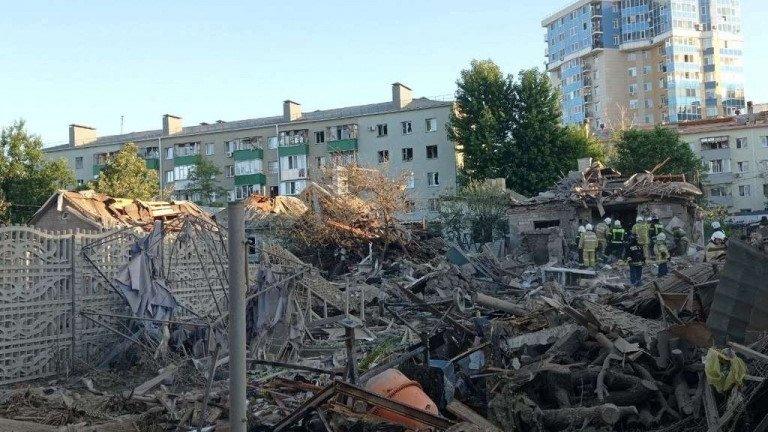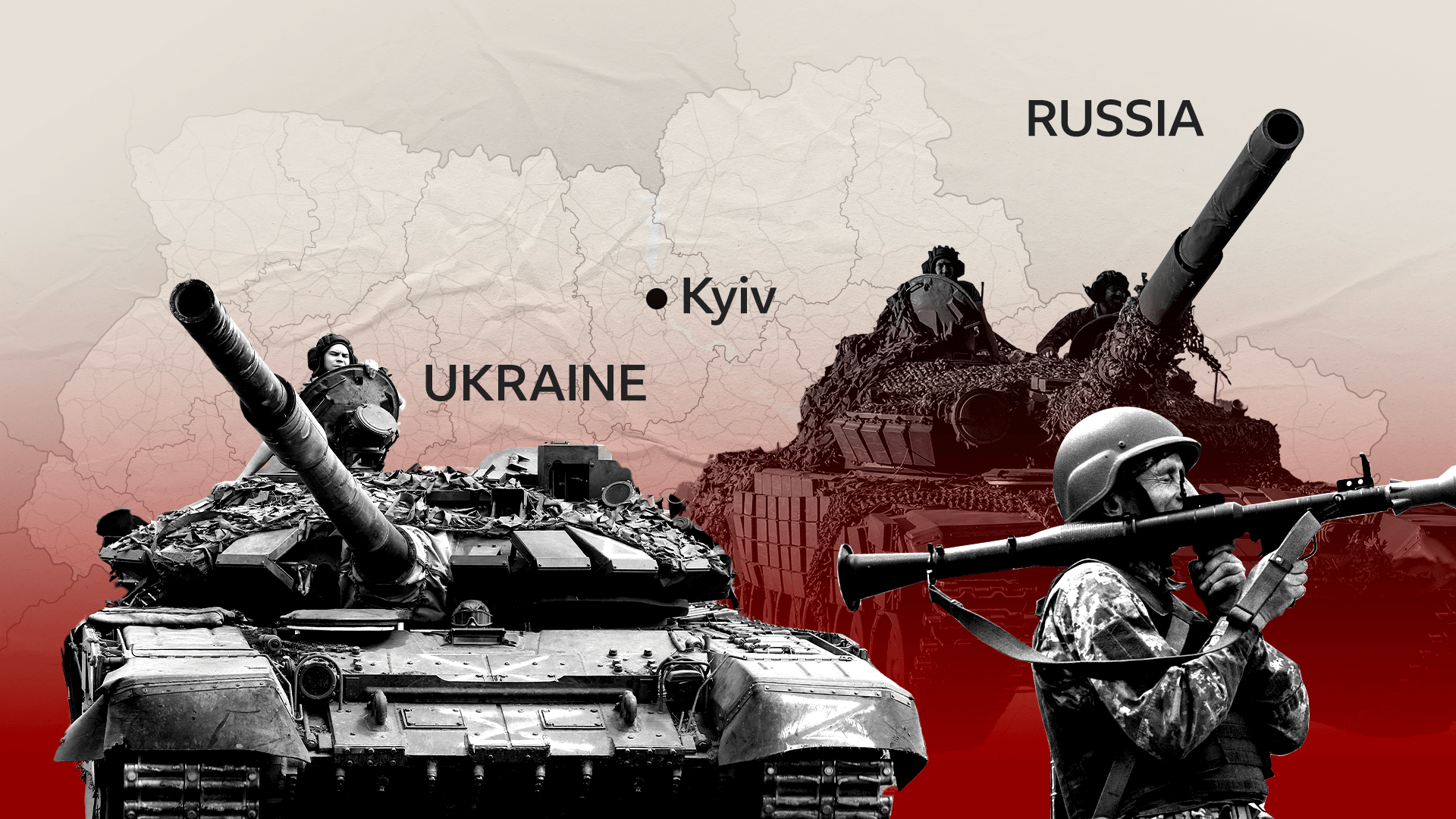Belgorod: Fear and denial in Russian city hit by shells
- Published
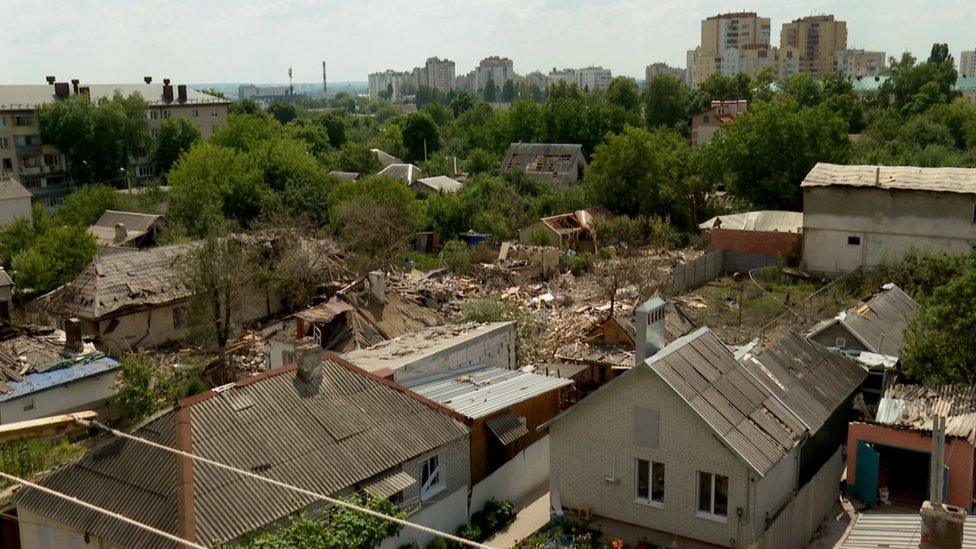
The site of the blast in Belgorod
In her fifth floor apartment in Belgorod, Lidiya tells me of her narrow escape.
"At ten past three on Sunday morning I was woken by a blinding flash and a loud explosion. I ran onto my balcony and saw a giant ball of flames heading towards the building.
"I ran inside. Suddenly all my windows shattered.
"Down below I heard shouting and crying. I could see rescuers digging people out of the rubble and carrying away the bodies."
Russia accuses Ukraine of launching three missiles at Belgorod. Ukrainian officials have denied it. But whatever it was that exploded in this southern Russian city, the emergency has completely undermined Moscow's claim that it ordered Russian troops into Ukraine to make Russia safer.
In reality, the security situation in Belgorod, and other Russian regions near the Ukrainian border, has deteriorated since the invasion.
"This is the first time something like this has happened in the city," Lidiya tells me. "There was no shelling in the city of Belgorod half a year ago."
Local officials say four civilians were killed in the explosion and dozens of houses damaged.
Across the border the scale of destruction has been far greater.
Since the start of the Russian invasion, thousands of civilians have been killed in Ukraine; some cities have been reduced to rubble by repeated shelling.
"We need to live in peace with Ukraine. We always used to," Lidiya tells me. "So many of us have relatives in Ukraine. And there are many Ukrainians living here."
Most of the people I speak to in Belgorod are not so conciliatory.
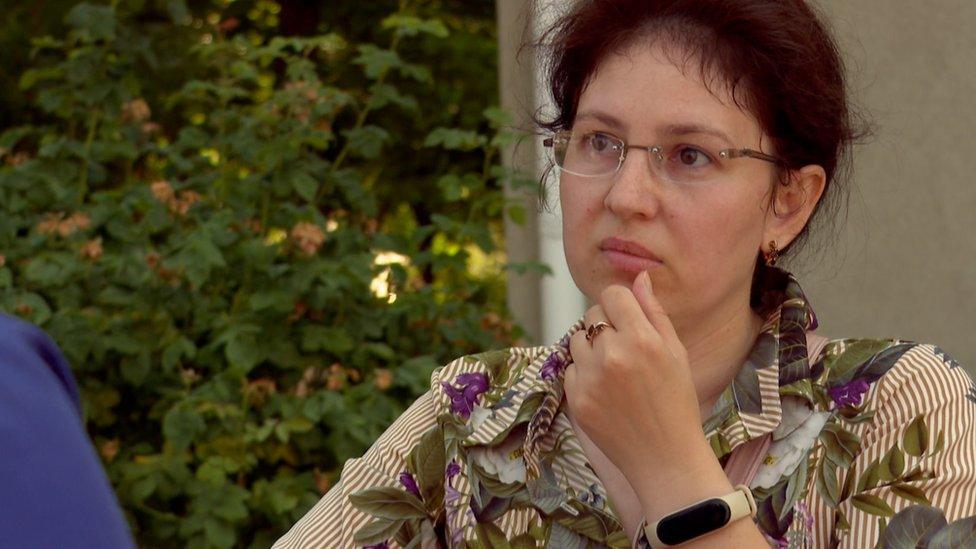
Knarik would like to see harsher methods used against the Ukrainians
"Russia needs to give a proper response to this, so that there is no more shelling and so they stop scaring our people," says Vadim. We're talking near the police cordon. "Firing a missile back at Kyiv would have made them think."
Knarik tells me she "feels sorry" for people in Ukraine. "They're the same as us. They have children, too. But I think we need to take harsher measures."
So many people here do not join the dots; they don't make the connection between Russia invading Ukraine and their lives becoming less safe.

War in Ukraine: More coverage
ANALYSIS: Can we say how many people have died?
STOLEN GRAIN: Tracking where Russia takes Ukraine's grain
UKRAINE: Teaching from the trenches
READ MORE: Full coverage of the crisis, external

That's partly because the Russian state media does all it can to prevent those dots from being joined together in people's minds. It does so by demonising Ukrainians: referring to them as "Nazis", "neo-Nazis", "fascists" and "ultra-nationalists", and by repeating from morning till night that in this conflict Russia has justice on its side.
But, also, many Russians simply don't want to believe that their country started this, that Russia could possibly be the aggressor.
Now, though, a senior figure in the Russian Orthodox Church has spoken out for peace. Following the explosion in Belgorod, Metropolitan Ioann of Belgorod and Stary Oskol said it was time "to turn swords into ploughshares".
On the website of the Belgorod Diocese, he wrote: "We humbly pray that the deceased find peace and that the injured heal. We pray for an end to the bloodshed that is taking place on Ukrainian soil, but which has today come to our homes too."
Lidiya agrees.
"We need to restore good relations in a peaceful way," she tells me. "We need to come to our senses."

You may also be interested in:
Watch: BBC journalist Olga Malchevska returns to bombed Kyiv home for the first time
Related topics
- Published3 July 2022
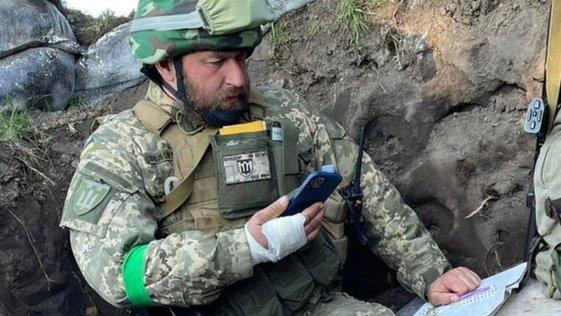
- Published3 July 2022
